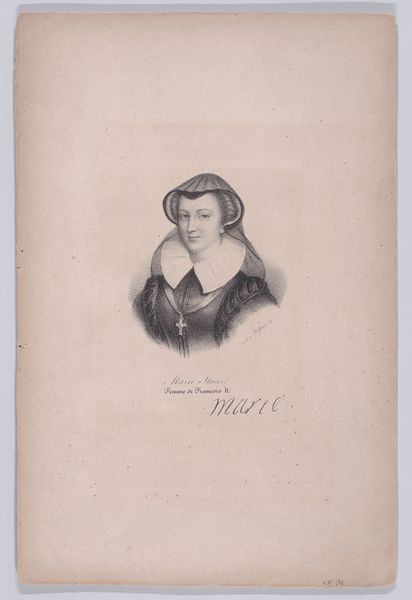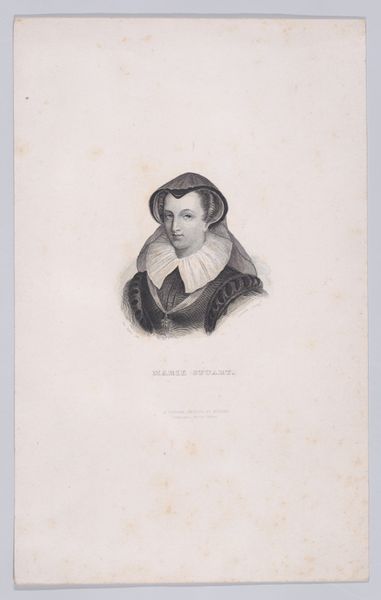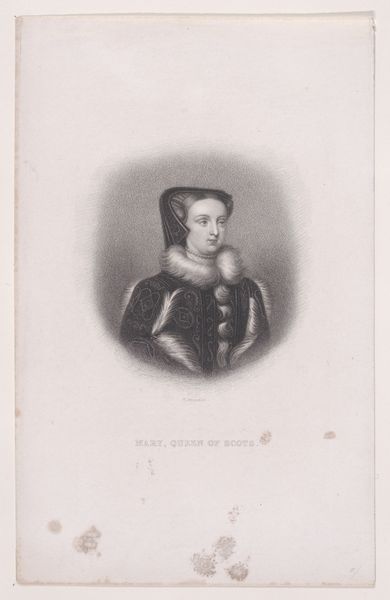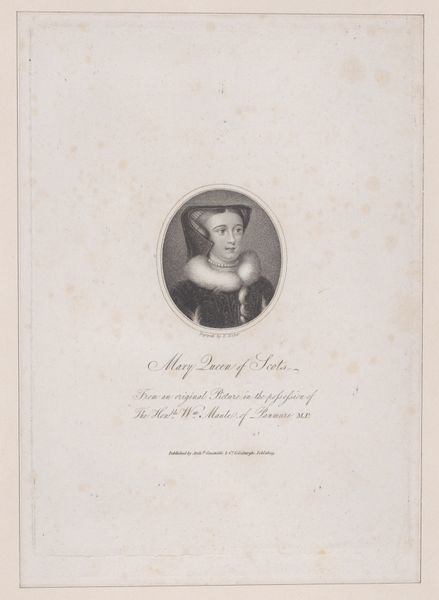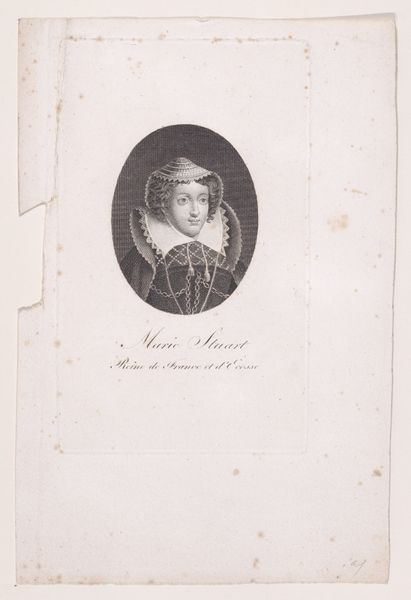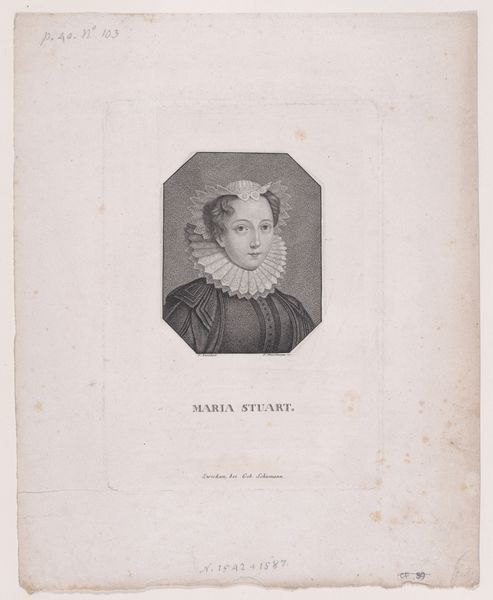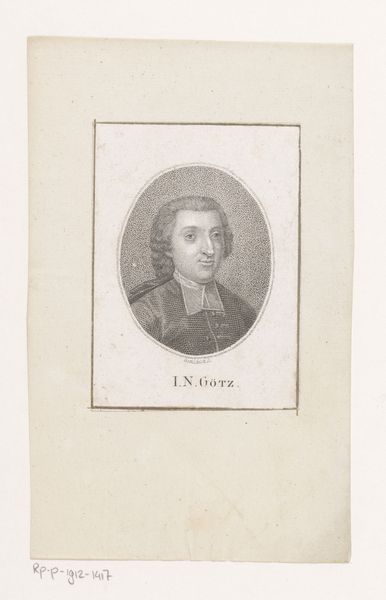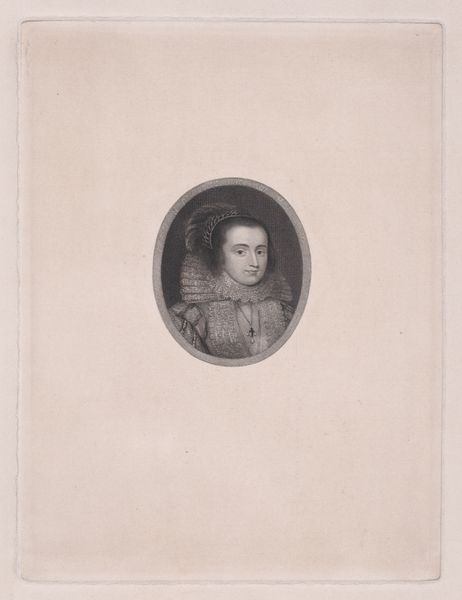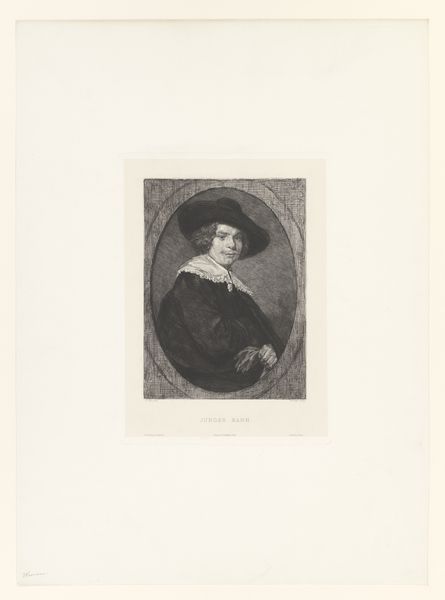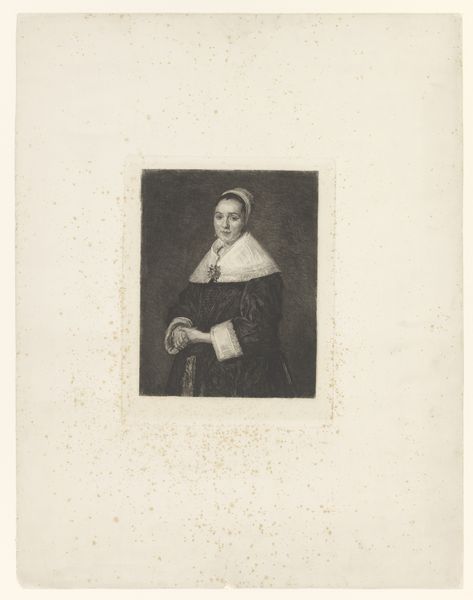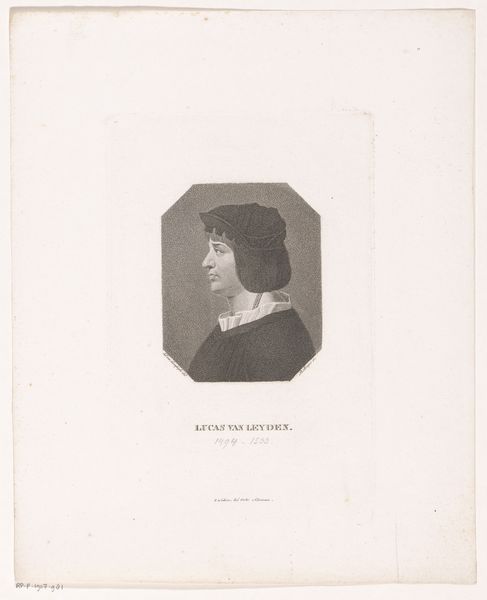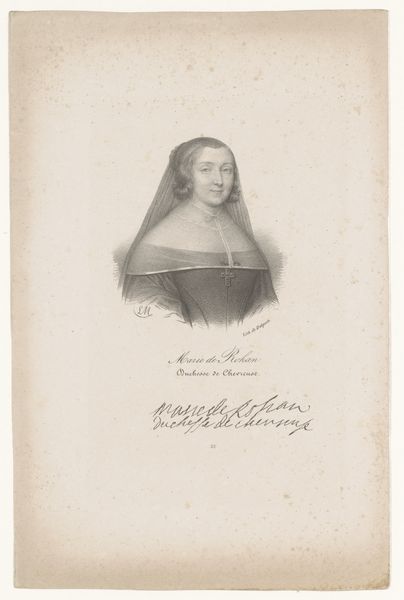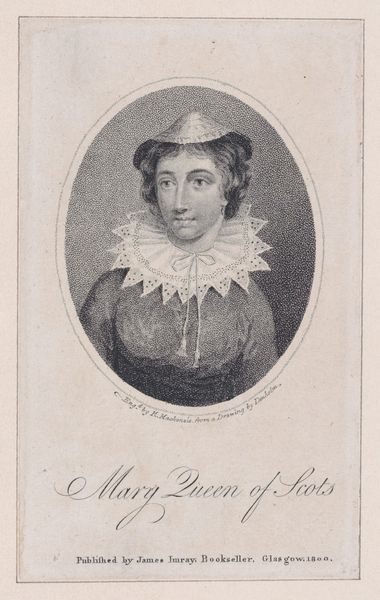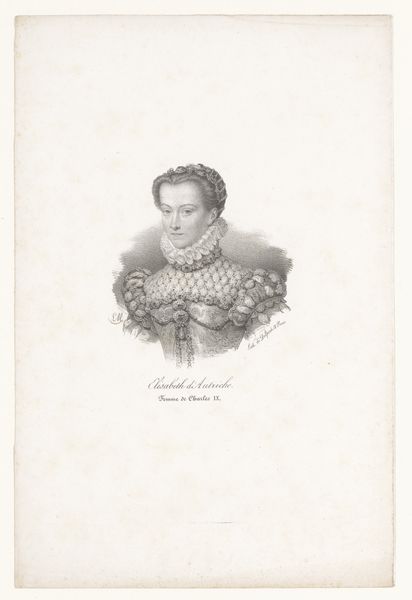
drawing, print, engraving
#
portrait
#
drawing
# print
#
figuration
#
romanticism
#
history-painting
#
engraving
Dimensions: Sheet: 9 7/16 × 6 5/16 in. (23.9 × 16 cm)
Copyright: Public Domain
This print of Mary, Queen of Scots, was made by Delpech using the technique of lithography, a method that democratized image-making in the 19th century. Unlike earlier forms of printmaking that demanded the intensive labor of carving into wood or metal, lithography is planographic, meaning the image is drawn on a flat surface, typically a stone, with a greasy crayon. The stone is then treated so that ink adheres only to the drawn areas. This process allowed for the relatively quick reproduction of images, making them more accessible to a wider audience. In this context, consider how lithography facilitated the distribution of portraits, like this one, shaping public perception of historical figures. The softness of the lithographic crayon also lends a delicate quality to the image, contrasting with the sharp lines of engraving, and creating a sense of intimacy. Looking closely at the details, consider the degree of skill required to render the Queen's likeness. By understanding the materials and processes involved, we can appreciate lithography’s impact on art and society, challenging traditional hierarchies between fine art and commercial production.
Comments
No comments
Be the first to comment and join the conversation on the ultimate creative platform.
